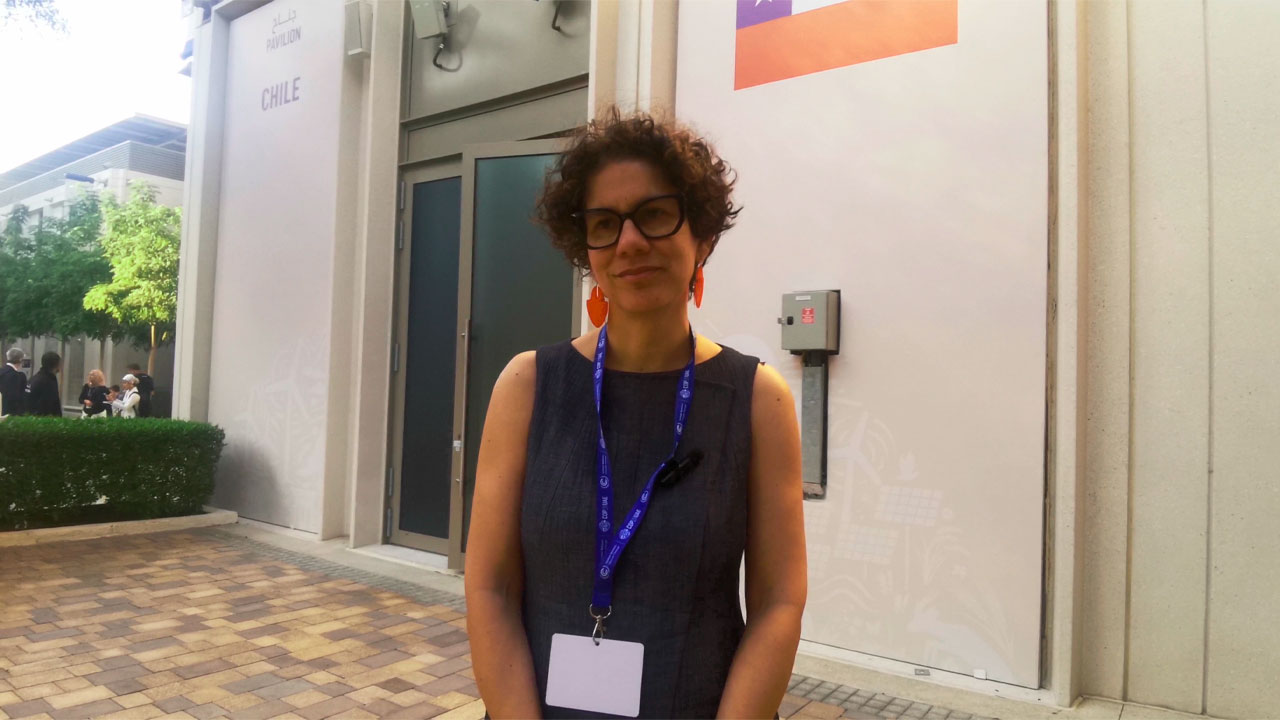
Former Minister of the Environment, Marcelo Mena, and current Minister Rojas -both present at COP 28- agreed that Chile's environmental policy does not depend on one government or another, but rather works in the long term and with a State Policy on the Matter.
During a visit to Chile's pavilion in the COP 28 Blue Zone and in the midst of its tight agenda, the Minister of the Environment, Maisa Rojas, emphasized that Chile "is an example of climate ambition" and that "its action in the face of climate change has been a state policy". She added that since the signing of the Paris Agreement in 2015, "we have always been at the forefront as a small country that believes that climate action is a benefit for its citizens".
Minister Rojas - who this year has the role of co-facilitating the relevant negotiation of the Global Adaptation Goal in Dubai - pointed out that "the challenges of climate action have evolved enormously in Chile. As of 2022, the country has a Framework Law on Climate Change, which must now be implemented. It involves 17 ministries and all of Chile's municipalities and regions, which will have to prepare, implement and measure how we advance in their climate action plans".
The former Minister of the Environment, Marcelo Mena, who participates in Cop 28 as director of the Global Methane Hub, agreed with this long-term public policy perspective. He stressed that Chile's leadership on the issue of plastic "began in our government with the production of plastic bags, continues with the production of single-use plastic and today with the country's leadership in the Global Plastics Treaty. There is also the issue of energy, mitigation through the closure of coal-fired thermoelectric plants and the price of carbon, which are two cornerstones of decarbonization. Almost a third of the generation sector's emissions have fallen in the last four years, and so when one minister comes in, he passes the baton to another and then to the next, and we are giving each other advice on the barriers that we were unable to overcome".
In relation to the biodiversity of marine protected areas and national parks, former Minister Mena emphasized that after the passage of three governments "the process of the biodiversity service that will provide tools that will really allow its conservation is coming to an end". He stressed that all these initiatives "are unquestionable leaderships of the country, which are not self-declared, but rather are recognized by the world. Chile has shown environmental leadership, which is not just a promise but a reality.
Role of the private sector in mitigating climate change
According to former Minister Marcelo Mena "the Chilean private sector has always been an ally of climate policy". Something that became evident with the issue of decarbonization "lowers their operational costs, there is less volatility in the prices they have ahead of them, and at the same time allows them to dump what would be spent on a fuel, in investment and in growth and employment in the country, decarbonization is betting on Chile and its resources".
In this regard, Minister Maisa Rojas said that "a large part of the Chilean private sector understands that the energy transition is a development opportunity for the country, and another sector is already suffering the adverse impacts of climate change. There is understanding, they have to learn, get involved, mitigate and adapt". He added that it is the public sector "that commits in these Cop 28 negotiations, that translates that into a law that commits us in a binding way in the country, but finally the private sector implements those commitments. So we need a joint action, a public-private alliance, to implement the actions we have committed to".








